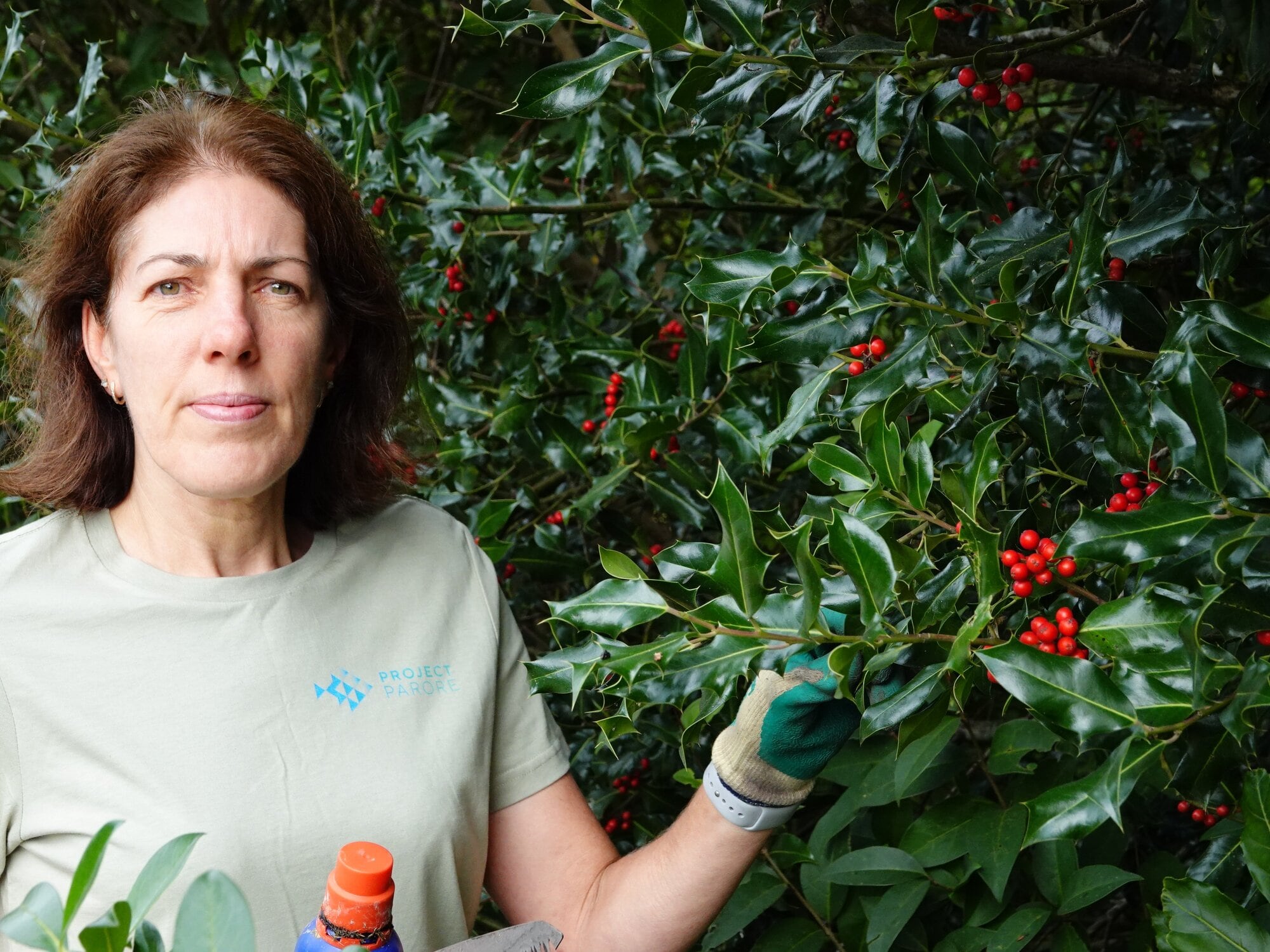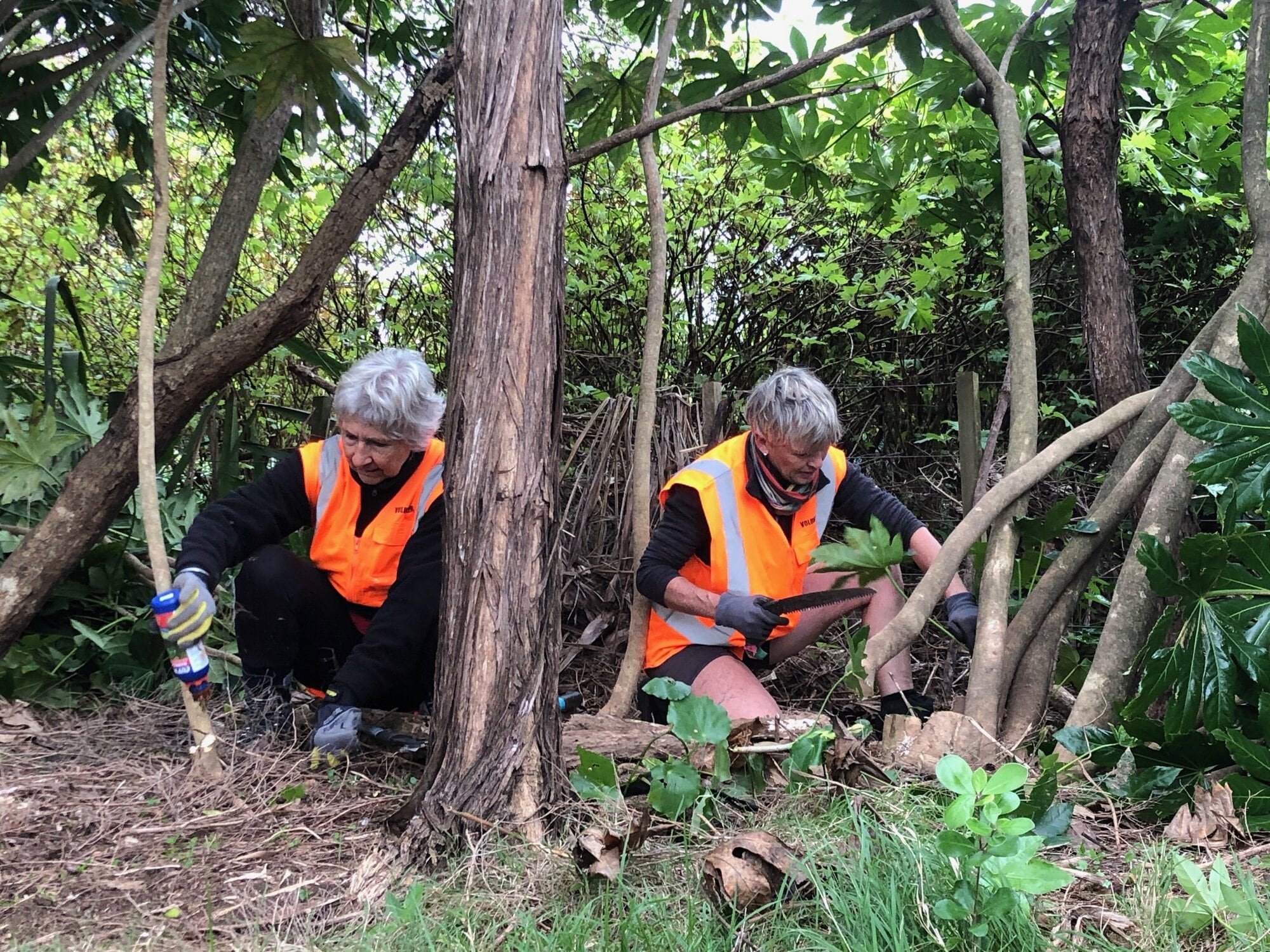Katikati residents are being encouraged to roll up their sleeves to help tackle problematic pest plants at a free, hands-on workshop this weekend.
“We want people to be able to recognise these plants in their own backyards early so they don’t become a major problem,” said Sharon Strong, the co-ordinator of Renaturing Katikati, which is the urban arm of Project Parore.
“The sooner we can remove them, the more cost-effective and manageable it is.”
Participants will learn about identifying pest plants and various control techniques.
“Some can be hand-pulled, while others require tools like the extractigator, which levers out stubborn plants like privet and Taiwan cherry. If that’s not possible, then we may need to use herbicides. For larger trees, we might have to drill and fill with chemicals, and if they’re near a walkway, an arborist might be required,” explained Strong.
The goal is to give people the knowledge to manage their properties first and then to consider joining volunteers who tackle reserves and community spaces.
“As a community, we can make a big difference in such a short space of time,” Strong said. “Some pest plants suffocate native seedlings, while others replace food sources for birds.”
A recent walkthrough of Waterford Reserve highlighted the problem.
“I counted 15 native plants, but 20 non-native species had crept in due to a lack of management. Bay of Plenty is known for its great growing conditions, which means pest plants thrive and without action, they’ll take over,” she said. “We’ve all contributed to the problem, sometimes unknowingly, by buying plants from garden centres that end up in our reserves. We all have a role to play in the solution.”

Sharon Strong with holly.
Volunteers are already making a dramatic difference.
“Even dedicating just five minutes a day or an hour a week can have a huge impact. Volunteers are eliminating these plants and their work is crucial. In fact, 80% of the mahi we do is focused on pest plant removal – that’s how big a problem it is.”
Strong admits when she started in her role four years ago, she imagined animal pests to be the focus.
“Pest plants weren’t high on my radar, but I’ve come to realise they’re a major threat to our ecosystem,” she said. “Pest plants can smother and suffocate our native bush in coastal areas, walkways and reserves.”
The scale of the issue can feel overwhelming, so Strong advises taking a methodical approach or joining forces with neighbours.
“Prioritise plants that have flowers or seeds to prevent further spread and tackle one plant at a time. It’s about preserving our natural spaces for future generations.”
The plant pest workshop is being held from 9.30am-11.30am on Saturday, April 5, at 1 Mulgan St. Morning tea provided. Please RSVP to Sharon: kea@projectparore.nz or 021 281 1774. Weather postponement day, Sunday, April 6.



0 comments
Leave a Comment
You must be logged in to make a comment.